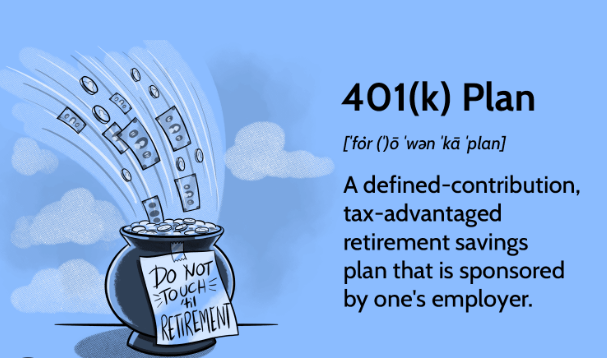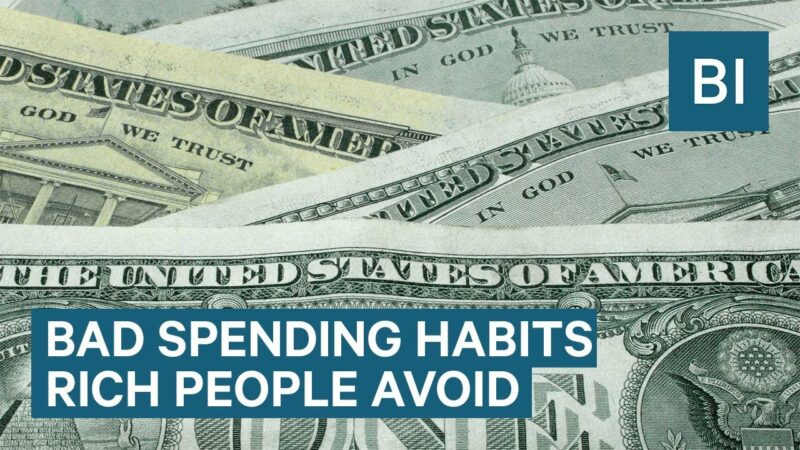In the United States, a retirement savings plan called a 401(k) is provided by numerous employers. It enables workers to save a portion of their pre-tax income into a savings account that invests in a variety of financial assets, including mutual funds, stocks, and bonds. The contributions accumulate tax-free until the employee reaches retirement age, upon which they can withdraw the funds.
What is a 401(k) Plan and How Does It Work?
Employees can use a 401(k) plan to save for retirement with pre-tax income, establishing a tax-advantaged investment account that can increase in value over time through investments in financial assets like stocks, bonds, and mutual funds. Early withdrawals are typically subject to income tax and penalties; however, once individuals reach retirement age, they can withdraw funds to meet their retirement needs. Overall, a 401(k) plan is an effective retirement savings strategy that offers tax advantages and the possibility of investment growth
The Benefits of Contributing to a 401(k) Plan
Contributing to a 401(k) plan offers numerous benefits. Firstly, it’s a convenient and straightforward way to save for retirement since contributions are automatically deducted from your paycheck. Secondly, many employers provide matching contributions, which translates to free money that can boost your retirement savings.
Moreover, contributions to a 401(k) plan are made using pre-tax dollars, reducing your taxable income and potentially resulting in tax savings. Additionally, investment earnings on contributions are tax-deferred until withdrawal, enabling potential growth of your retirement savings over time.
By contributing to a 401(k) plan, individuals can create a significant retirement nest egg, avoiding the financial difficulties that can arise from insufficient savings.
Why You Need a 401(k) Plan
A 401(k) plan is a crucial tool for retirement planning, and there are several reasons why you should consider having one:
Firstly, Social Security benefits may not be enough to support your retirement expenses, so it’s essential to have additional savings. By starting to save early through a 401(k) plan, you can benefit from compound interest, which can significantly increase your savings over time.
Secondly, a 401(k) plan provides tax advantages that can maximize your savings potential. Contributions made with pre-tax dollars lower your taxable income, reducing your tax liability. Moreover, the investment earnings on your contributions grow tax-free until withdrawal, allowing your savings to accumulate even faster.
Thirdly, many 401(k) plans offer employer matching contributions, providing you with extra savings that can grow your retirement fund.
Overall, a 401(k) plan is a reliable way to save for retirement and secure your financial future. To take advantage of the tax benefits and the power of compound interest, it’s advisable to start contributing early and make regular contributions.
The Tax Advantages of a 401(k) Plan
A 401(k) plan offers tax benefits as contributions are deducted from your income before taxes are calculated, lowering your taxable income and potentially resulting in a reduced tax bill. Moreover, investment earnings on your contributions grow tax-deferred until withdrawal, allowing for potential compound growth over time. In retirement, withdrawals from a 401(k) plan may be subject to lower tax rates since retirees typically have lower income than during their working years. Consequently, the tax advantages of a 401(k) plan can help increase your retirement savings potential and maximize the value of your contributions over time.
Tips for Maximizing 401(k) Contributions
If you want to make the most of your 401(k) plan, here are some tips to consider:
Firstly, start contributing as early as possible, even if you can only afford a small amount. This allows your savings to benefit from the power of compound interest, which can significantly increase your retirement savings over time.
Secondly, take full advantage of any employer matching contributions. This is essentially free money that can help boost your retirement savings, so make sure you’re contributing enough to receive the full match.
Thirdly, consider increasing your contributions over time. As your income grows or you receive a bonus or raise, it’s a good idea to increase your contributions to maximize your savings potential.
Fourthly, aim to contribute the maximum allowed by the IRS, which can increase each year. This is currently $19,500 for individuals under 50 years of age and $26,000 for those 50 and older. Contributing the maximum amount can help you save more and take advantage of the tax benefits.
Finally, regularly review and adjust your investment strategy to ensure that it aligns with your retirement goals. This can help you optimize your portfolio and make informed decisions about your retirement savings
How to Choose the Right 401(k) Plan
To get the most out of your 401(k) contributions and ensure a secure financial future, it’s crucial to choose the right plan. You can start by evaluating the following factors:
- Check the employer contributions and vesting schedule
- Look into the investment options and fees
- Consider plan features such as loan provisions and hardship withdrawals
- Check the quality of customer service and support
- Evaluate the company track record and reputation
- Look at the fees and expenses associated with the plan
By carefully assessing these factors and choosing a plan that aligns with your financial goals and situation, you can make the most of your 401(k) contributions and achieve your retirement objectives.
Common Misconceptions About 401(k) Plans
To make informed decisions about retirement savings, it’s crucial to understand the facts and dispel common misconceptions about 401(k) plans, such as
- 401(k) plans are only for the wealthy.
- You can only contribute to a 401(k) plan if you’re a certain age.
- 401(k) plans are too complex to understand.
- You can’t access your money until retirement.
- Your employer can take back their contributions.
- You’re limited to investing in a few options in a 401(k) plan.
- A 401(k) plan is sufficient to fully fund retirement.
By separating fact from fiction and understanding the true benefits and limitations of 401(k) plans, individuals can make informed decisions and take the necessary steps to maximize their retirement savings.
The Future of 401(k) Plans and Retirement Savings.
With the changing workforce and retirement landscape, 401(k) plans and retirement savings are expected to embrace technology and provide tailored investment advice. Employers will likely offer more flexible plan options that cater to their employees’ needs. Greater emphasis will also be placed on financial education and wellness programs to enable individuals to make informed decisions regarding their retirement savings. As people strive to maximize their retirement income sources, the role of Social Security in retirement planning may become a more prominent topic of discussion






